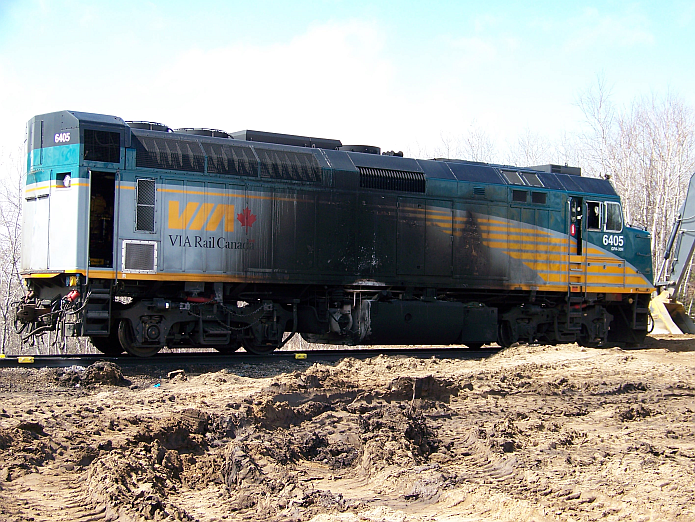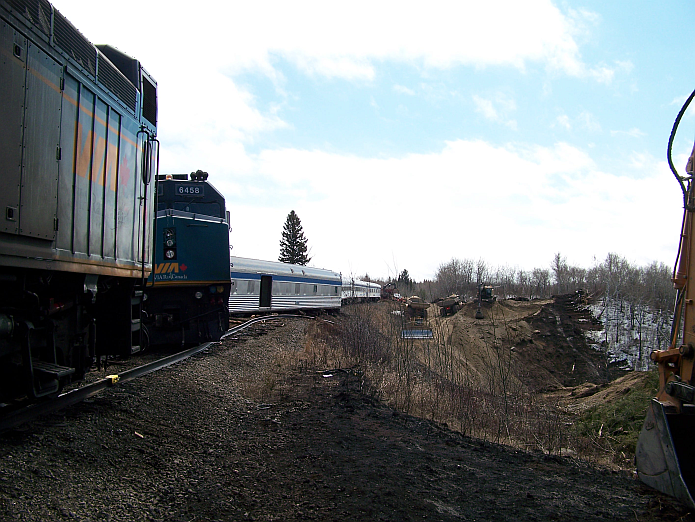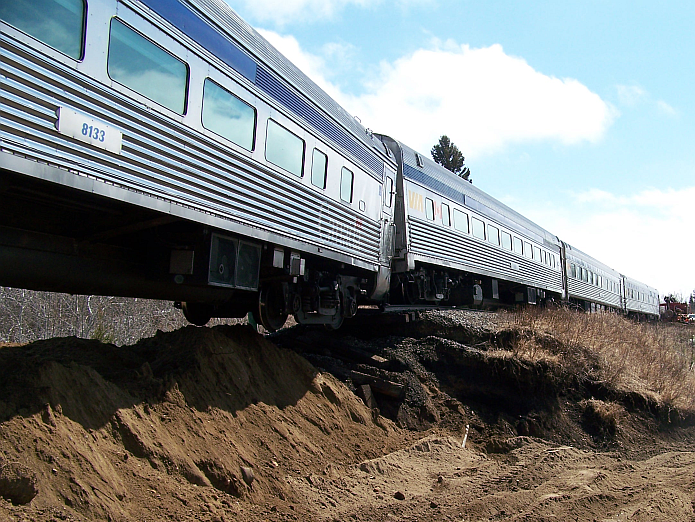Subgrade collapse and derailment
VIA Rail Canada Inc.
Train P69341-28
Mile 83.55 Togo Subdivision
Togo, Saskatchewan
The occurrence
On 28 April 2013, at approximately 1840 Central Standard Time, VIA Rail northward passenger train No. P69341-28 encountered a roadbed slump at Mile 83.55 of the Canadian National Railway Togo Subdivision, near Togo, Saskatchewan. The two locomotives and the two leading cars derailed. The fuel tanks on both locomotives ruptured, leaking diesel fuel that ignited and burned until it dissipated into the subgrade material. There were no injuries.
Media materials
News releases
Blocked water drainage system led to April 2013 embankment collapse and derailment of a VIA Rail train near Togo, Saskatchewan
Read the news release
Deployment notice
Transportation Safety Board of Canada deploys a team to the site of a derailment near Canora, Saskatchewan
The Transportation Safety Board of Canada (TSB) is deploying a team of investigators to the site of a derailment near Canora, Saskatchewan. Yesterday, at approximately 19:30 Central Time, a VIA Rail passenger train derailed 2 locomotives and 2 coach cars. All 7 passengers and 4 crew were evacuated safely and there were no injuries. The TSB will gather information and assess the occurrence.
Download high-resolution photos from the TSB Flickr page.
Class of investigation
This is a class 3 investigation. These investigations analyze a small number of safety issues, and may result in recommendations. Class 3 investigations are generally completed within 450 days. For more information, see the Policy on Occurrence Classification.
TSB investigation process
There are 3 phases to a TSB investigation
- Field phase: a team of investigators examines the occurrence site and wreckage, interviews witnesses and collects pertinent information.
- Examination and analysis phase: the TSB reviews pertinent records, tests components of the wreckage in the lab, determines the sequence of events and identifies safety deficiencies. When safety deficiencies are suspected or confirmed, the TSB advises the appropriate authority without waiting until publication of the final report.
- Report phase: a confidential draft report is approved by the Board and sent to persons and corporations who are directly concerned by the report. They then have the opportunity to dispute or correct information they believe to be incorrect. The Board considers all representations before approving the final report, which is subsequently released to the public.
For more information, see our Investigation process page.
The TSB is an independent agency that investigates air, marine, pipeline, and rail transportation occurrences. Its sole aim is the advancement of transportation safety. It is not the function of the Board to assign fault or determine civil or criminal liability.


